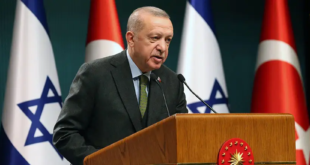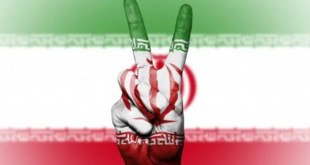Fear of violence looms over Lebanon after parliament failed to elect a new head of state on Friday, but analysts say blood will not flow just yet since rival political groups have too much to lose.The election was delayed again on Friday in hope that a deal will emerge but that means the country will not have a president for at least a week, raising fears Lebanon will once again be engulfed in violence, 17 years after the end of the civil war.
The majority, led by Sunni Muslim parliament member Saad al-Hariri, and the pro-Syrian opposition, led by the Shi’ite Muslim movement Hezbollah, had threatened to take unilateral measures if no president was elected. They have accused each other of arming and training their followers.
But both appear to be avoiding any escalation, fearing it would quickly acquire Sunni-Shi’ite sectarian overtones, a scenario neither group wants as long as there are still chances to resolve the crisis peacefully.
Paul Salem, director of the Beirut branch of the Carnegie Endowment for International Peace, doubted either side would take any provocative actions for the time being.
“Nobody will make a move to escalate anything. It is lose-lose for both of the sides. March 14 (ruling coalition) is not strong enough to win… Hezbollah and Iran don’t want to be in a Sunni-Shi’ite civil war,” Salem said.
The ruling coalition realizes it is no match militarily for well-armed Iranian-backed Hezbollah, and has even toned down its rhetoric against Syria, which it accuses of interfering in Lebanon’s affairs through its Hezbollah ally.
On Friday, Parliamentary Speaker Nabih Berri, a Shi’ite opposition leader, put off the vote to elect a president for a fifth time because rival factions were deadlocked. The departure of pro-Syrian Emile Lahoud before a successor is chosen leaves the country in a constitutional vacuum.Â
Prime Minister Fouad Siniora’s Western-backed cabinet expects to assume presidential powers, which are mainly to ratify government decisions, until a new head of state is elected, even though the opposition challenges its legitimacy.
Hezbollah has supported the idea of Lahoud handing over his powers to army chief General Michel Suleiman.
The ruling coalition has said it may elect a president outside parliament using its absolute majority, a move the opposition has said is tantamount to a coup because the vote would not take place in parliament or have the needed quorum.
“We didn’t use the 50 + 1 percent option because we want consensus,” Hariri later said.
FLEXIBLE WITH SYRIA
Members of the majority have blamed Syria for obstructing the presidential vote, but only three days ago one of Syria’s most vocal critics made surprisingly conciliatory remarks.
Analysts said another factor for Hezbollah restraint could be Syria’s wish to continue to engage Western mediators, an engagement that has eased its international isolation since the 2005 slaying of former premier Rafik al-Hariri.
Anti-Syrians blame the killing on Damascus, a charge it denies.
France, Lebanon’s former colonial power, led those mediations and French President Nicolas Sarkozy even called Syrian President Bashar al-Assad and sent senior members of his staff to Damascus twice to help in the mediation.
“No president being is elected because we failed to pressurize the Syrians,” said Dominique Moisi, senior adviser to the French Institute for International Relations in Paris.
Moisi says Western powers came to the conclusion that Syrian cooperation was needed to resolve outstanding issues in the Middle East.
Syria hosts leaders of Hamas, a Palestinian Islamist movement that took control of the Gaza Strip in June, and Damascus wants to regain control of the Israeli-occupied Golan Heights. U.S. officials accuse Syria of allowing foreign fighters to cross its long, porous border with Iraq.
The United States invited Syria to the November 27 Annapolis peace talks which are supposed to launch formal negotiations on Palestinian statehood.
“The international community needs Syria for Israel-Palestine, Iraq and other issues and they (Syrians) understood that really well,” Moisi said. “The message (from) Syria … is ‘You need us more than we need you.'”
Nevertheless, with many options for what happens next still at play, Lebanese are pessimistic.
“I hope Lebanon survives but I’m scared it will disappear,” Lebanon’s renowned novelist Elias Khoury said.
 Eurasia Press & News
Eurasia Press & News



